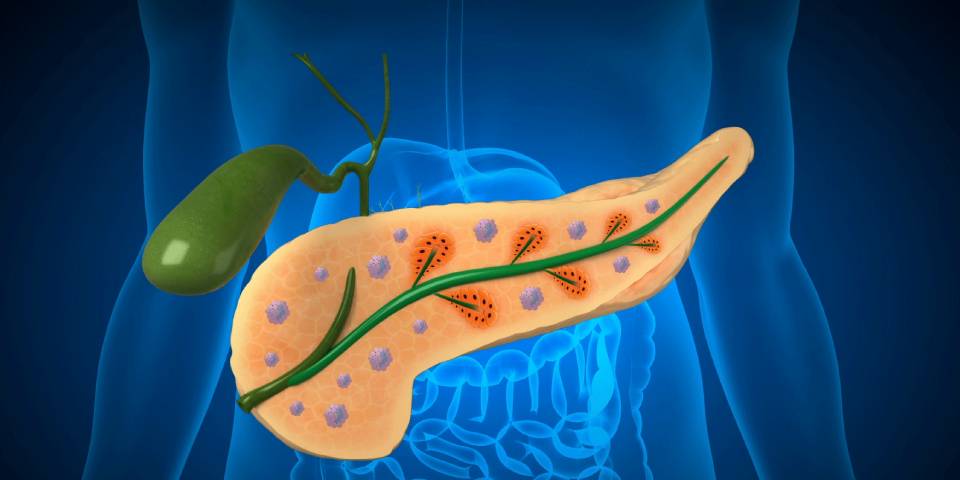Have you ever wondered how doctors treat pancreatic cancer when it affects the tail or body of the pancreas? One of the most effective surgical options for such cases is Distal Pancreatectomy. This procedure has given hope to many patients battling pancreatic cancer. With advanced surgical care available in Pune, more patients are now getting access to safe and effective treatment options.
Here’s What You’ll Learn in This Blog:
- What a distal pancreatectomy is and when it’s needed.
- How the surgery is performed and what recovery looks like.
- Benefits, risks, and cost details in Pune and India.
- When to consult a distal pancreatectomy specialist in Pune.
What Is a Distal Pancreatectomy?
A distal pancreatectomy is a surgical procedure where the tail and part of the body of the pancreas are removed. It’s usually recommended when cancer or a tumour is found in these sections. Sometimes, the spleen is also removed if it’s close to the tumour.
In modern practice, surgeons often perform laparoscopic distal pancreatectomy in Pune, which uses small incisions, leading to faster recovery and less pain. This is one of the most preferred pancreatic cancer treatment options in Pune for localized tumours.
When Is a Distal Pancreatectomy Needed for Pancreatic Cancer?
A distal pancreatectomy pancreatic cancer treatment is advised when the tumour is located in the body or tail of the pancreas and has not spread to major blood vessels or other organs.
- You may need this surgery if:
- The cancer is detected early and confined to one area.
- You have cysts or benign tumours that could become cancerous.
- Other treatments like chemotherapy, are not sufficient alone.
This approach is often part of advanced pancreas surgery in Pune, aimed at removing cancer completely while preserving healthy pancreatic function.
Eligibility, Risks & Pre-Operative Considerations:
Before undergoing a distal pancreatectomy, your doctor will thoroughly assess your health condition to ensure you are fit for surgery. The distal pancreatectomy when needed in pancreatic cancer depends on several important factors:
Eligibility Criteria:
- The tumour is located in the body or tail of the pancreas.
- The cancer has not spread to major blood vessels or distant organs.
- The patient has adequate liver and kidney function.
- The overall health condition allows for safe anaesthesia and recovery.
- The patient has no severe heart or lung diseases that could increase surgical risk.
Pre-Operative Considerations:
- Detailed imaging tests like CT or MRI to locate the tumour accurately.
- Blood tests to assess pancreatic and liver function.
- Nutritional and fitness counselling to improve surgical outcomes.
- Stopping certain medications (like blood thinners) before surgery.
Common Risks Involved:
- Infection or bleeding at the surgical site.
- Leakage of pancreatic fluids after surgery.
- Temporary digestion issues or enzyme imbalance.
- Delayed gastric emptying (slower food movement from the stomach to the intestines).
- Diabetes risk if a large portion of the pancreas is removed.
However, at the best pancreatic cancer surgery centre in Pune, skilled surgeons like Dr. Manoj Dongare ensure minimal complications using precision techniques and advanced post-operative care.
Procedure Details: What Happens During & After Surgery:
A distal pancreatectomy specialist in Pune performs the procedure under general anaesthesia. The surgeon makes small incisions to remove the affected part of the pancreas. If required, the spleen may also be removed.
Post-surgery recovery includes:
- Hospital stay for 5–7 days
- Gradual return to normal diet
- Regular follow-ups and imaging scans
Most patients resume daily activities within a few weeks, especially with laparoscopic distal pancreatectomy in Pune.
Benefits Vs. Limitations of Distal Pancreatectomy:
Benefits:
- Removes cancer-affected tissues completely
- Faster recovery with laparoscopic surgery
- Preserves remaining pancreatic function
- Improves long-term survival rates
Limitations:
- Not suitable for advanced or metastatic cancers
- May cause temporary diabetes in some cases
- Requires expert post-operative care
Patients often report better outcomes when treated at an advanced pancreas surgery centre in Pune with multidisciplinary cancer care.
Cost, Accessibility & Choosing the Best Centre in India:
The distal pancreatectomy cost in Pune varies depending on the hospital, surgical technique, and whether it’s open or laparoscopic. On average, it ranges between ₹3,00,000 and ₹7,00,000.
At Dr. D. Y. Patil Hospital and Research Centre, Pimpri, Dr. Manoj Dongare provides affordable and expert care for body and tail pancreatic cancer surgery in Pune. The centre also offers government health schemes, making pancreatic tail cancer surgery cost in Pune accessible for all patients.
If you’re seeking the best pancreatic cancer surgery centre in Pune, look for one that offers a team-based approach with surgical oncology, radiology, and rehabilitation support.
When to Consult a Pancreatic Cancer & Surgery Specialist in Pune?
You should consult a liver and pancreatic cancer surgeon if you experience:
- Unexplained weight loss or abdominal pain
- Persistent jaundice or appetite loss
- A detected mass in the pancreas on imaging tests
Early consultation at a reputed centre ensures better treatment planning and recovery.
Conclusion:
A distal pancreatectomy can be life-saving for patients with pancreatic cancer confined to the body or tail of the pancreas. With advancements in surgical technology, patients in Pune now have access to safe, effective, and affordable treatment options.
For expert guidance, consult Dr. Manoj Dongare, one of the best pancreatic cancer surgeon in Pune, known for his skill in advanced pancreas surgery and compassionate patient care.
Frequently Asked Questions (FAQ's):
Sometimes, yes. Removing part of the pancreas can reduce insulin production, but most patients maintain normal blood sugar with a healthy lifestyle and follow-up care.
The surgery typically takes 3 to 5 hours, depending on complexity and whether it’s done laparoscopically.
You can expect mild fatigue, changes in digestion, and gradual improvement over a few weeks. Regular follow-up and diet monitoring are important.
It’s best to avoid alcohol, especially in the initial months. Alcohol can affect liver and pancreas recovery after surgery.

